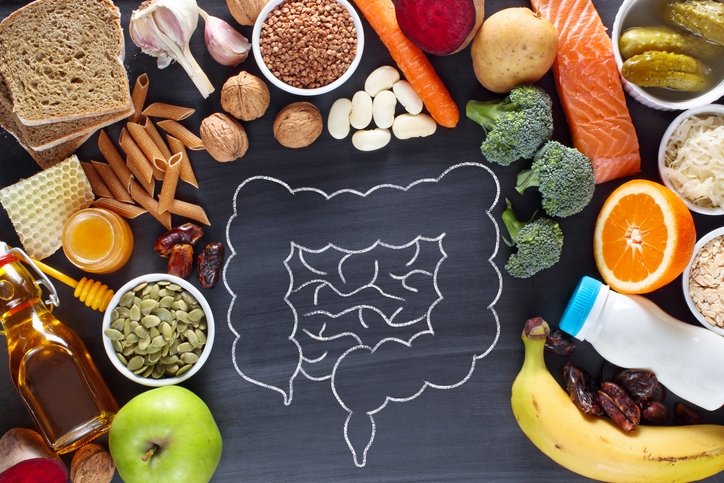Food is incredibly diverse. Meaning not all food will have the same level of nutrients. Knowing what nutrients you need is generally beneficial for your overall well-being. For instance, water is a nutrient you need to have plenty of when you’re sick with a cold. So, when it comes to preventative anal fissure treatment, the best way to go about it is by knowing what foods can help. Yet, with so much food out there, which ones are the best? Which foods will make anal fissures worse? Understand everything you need to know here, so you can effectively cure your anal fissures with the right foods.
Understanding The Role Of Nutrients For Anal Fissure Treatment
Anal fissures are a tear or open sore that develops in the lining of the large intestine near the anus. Cases are caused by one of two common culprits – persistent constipation or diarrhea. Constipation from having too many hard or large stools can lead to tears in the lining of the anal canal. Initially, it may seem unlikely for diarrhea to cause anal fissures. However, diarrhea causes your anal skin to become too dry until it eventually cracks into painful tears.
What is the solution to these polarizing causes of anal fissures? It all comes down to ensuring you have healthy stool – which starts with being mindful of what you eat.
Regarding anal fissures, you want to find nutrients in food that promote better bowel movement. Be on the lookout for foods containing the following nutrients:
- Fibre: Fibre is your best friend when dealing with anal fissures. Increasing your fibre intake helps with your digestion by helping to solidify your stools while ensuring it’s also soft.
- Probiotics: Probiotics help bring balance back to your gut. More probiotics aid in repopulating the intestines and colon with normal bacteria, which helps correct the levels of healthy bacteria in your bowels. You can buy probiotics here.
- Water: Being hydrated is generally best for your overall health. However, water helps against anal fissures by keeping the stools soft, leading to smooth passage, thus protecting the anal canal.
- Vitamin C: There are various benefits of having vitamin C – but did you know it’s good for collagen and skin health? With that said, it’s great for helping in healing wounds like tears from anal fissures.
- Zinc: Although zinc is a trace mineral, it can go a long way toward treating anal fissures. Zinc is another essential mineral nutrient that can assist in wound healing. Good to consider for an extra boost beyond vitamin C.
What Certain Foods Can Do For Anal Fissures
Now, the big question is: what foods have the right nutrients to help against anal fissures? Thankfully, you can choose from plenty! Based on the food pyramid as a guide, it will showcase what foods in certain groups can do toward treating or exacerbating anal fissures. Check them out here from the base of the food pyramid to the top.
Fruit & Vegetables
Have you been eating enough fruits and vegetables? If not, it probably explains how you may have ended up with anal fissures in the first place. Fruits and vegetables are packed with essential nutrients to help with proper digestion that aid in healing your anal fissure. Leafy vegetables are perfect since they contain plenty of water and minerals, making them easier to digest and heal. For instance, lettuce and spinach are great since they won’t cause discomfort to your inflamed colon—meanwhile, fruits like papaya, lemons, and bananas are good too.
Grains & Starches
Knowing what grains and starches are tricky. However, the secret is understanding whether these foods have fibre in them. So, what grains and starches are good for when you’re on a diet to get rid of anal fissures? Here are a few suggestions:
- Whole grains
- Brown rice
- Oatmeal
If you notice some improvement within a week or two, you can start eating starches like mashed potatoes, white rice, and pasta again.
Meat & Proteins
Protein is an important nutrient since it helps to repair cells. Thankfully, there are various foods you can get protein from. If you’re wondering what meat is okay to have, you can safely consume eggs, fish, and poultry for your anal fissure diet. The proteins in these meats are instrumental in healing the skin of the anal canal. However, keep in mind to avoid red meat. Why is that? Red meats like beef and pork have too much protein, which can worsen your condition. If you’re a vegetarian or vegan, you can always opt for beans and legumes (also technically veggies!) to get much-needed fibre and protein.
Milk & Dairy
Like grains and starches, there are certain milk and dairy foods you should go for and others to avoid. Firstly, cheese lovers must take a break from it until their anal fissure heals. Cheese is notorious for causing constipation, which is what you want to prevent when healing. However, the best ones for healing are milk and yogurt. Notably, yogurt is great since it’s full of probiotics to help you get back to normal.
Fats & Sugars
Lastly, anything at the top of this food pyramid is off-limits when trying to heal. These include the following:
- Anything with Sugar
- Fast Food
- Food with Too-Much Salt
- Alcohol
- Caffeinated beverages
- Packaged Foods
- Spicy Foods
- Frozen Foods
Knowing the right foods is a natural form of anal fissure treatment and prevention. It’s certainly not the best for severe cases, but great for mild ones. A proper diet rich in certain nutrients to help with healing and managing symptoms is not only perfect for treatment – it’s also great to emulate as a healthy, daily diet.



